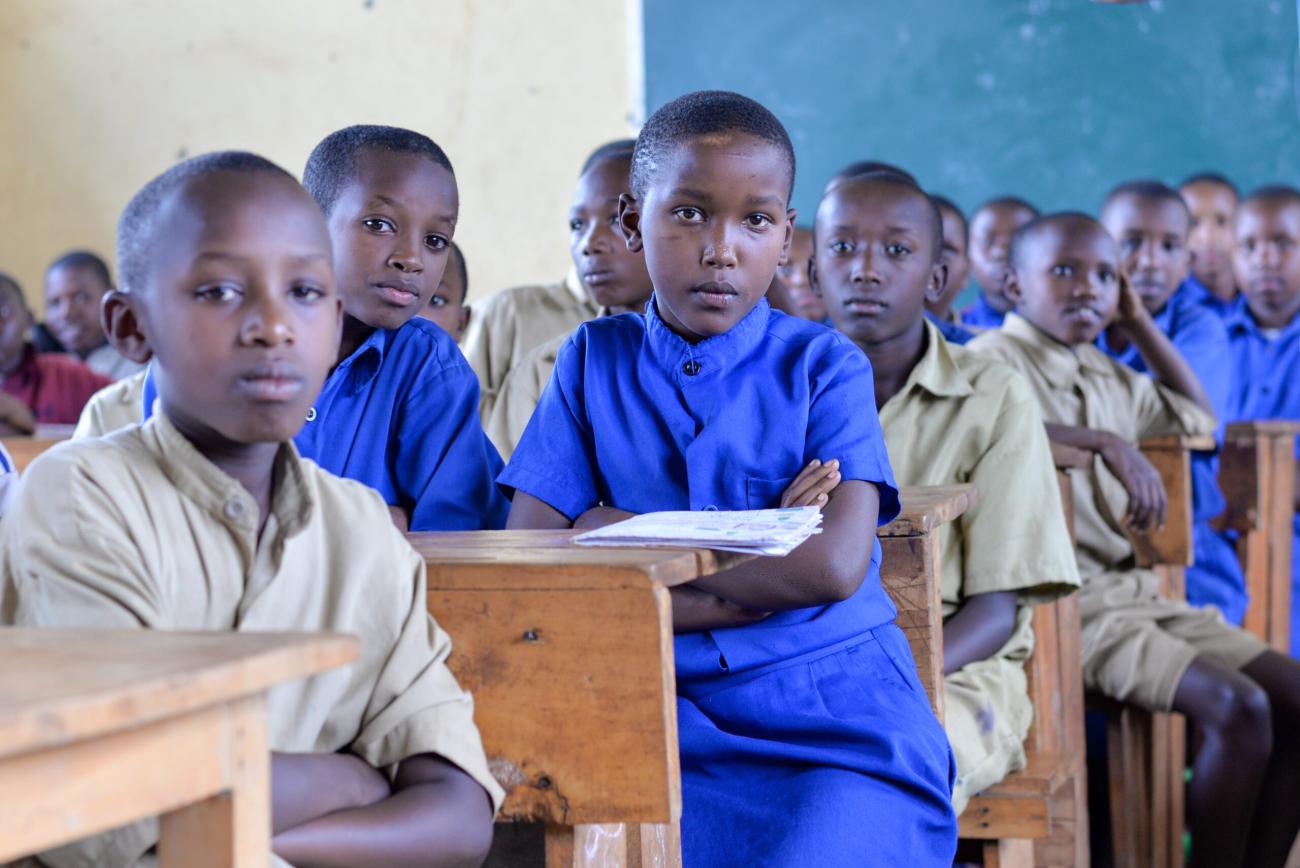Rwanda: 1000 hills and a big heart

One year on: Nine pledges made by the Government of Rwanda at the Global Refugee Forum:
Education, livelihoods, protection, energy and environment, and health show progress and promise.
The one-year mark of the Global Refugee Forum (GRF) held in Geneva, allows us to reflect upon the nine pledges made by the Government of Rwanda to improve the lives of refugees hosted here. The GRF was the largest consultation in the history of UNHCR, with more than 3,000 registered participants, four Heads of State, 90 officials at the ministerial level, 70 refugees, 300 international organizations, NGOs, academic institutions and 130 private sector representatives. In all, 770 pledges and USD 5.5 billion USD in commitments over the next four years, were made in support of refugees and their hosts.
Rwanda had made eight commitments at the High-Level Segment on Statelessness in October 2019; and together, this makes 17 pledges, the highest in the East, Horn of Africa, and Great Lakes region.
There are approximately 146,000 refugees mostly from Congo and Burundi, residents in Rwanda, and some 260 evacuees from Libya at the Emergency Transit Centre (ETM) in Gashora. The ETM has often been described as an “African solution to an African problem” and it is with the same generosity of spirit that the Government of Rwanda made impressive commitments through the pledges that focus on education, livelihoods, protection, environment, energy and health.
The pledges build upon earlier commitments made at the Leaders’ Summit in 2016: (i) graduating camp-based refugees out of assistance programs and increasing formal access to work opportunities as part of a joint livelihoods strategy; (ii) ensuring that 100% of refugees are in possession of valid refugee identity cards issued by the Government (NIDA); (iii) integrating 100% of refugee students in secondary school and 50% in primary schools into national education systems; and (iv) ensuring that 100% of urban refugees will have the opportunity to buy into national health insurance systems.
Energy and Environment is a new pledging area but is a top priority for the Government which is committed to clean energy and a green future. The banning of plastic countrywide and the banning of firewood for fuel are important steps towards this goal. Working together with the Ministry of Environment, visits were made to all six refugee camps, to assess environmental damage and the impact of hosting refugees on local host communities.
Impressive progress on the 2016 commitments – more than 90% of refugee students are integrated into national education systems; 68% of urban refugees were enrolled in the Community Based Health Initiative (CBHI)— form the foundation for the pledges made at the Global Refugee Forum (GRF).
Despite the challenges of COVID-19 –an unprecedented pandemic, all nine pledges have on-going activities. Donors such as the World Bank, IKEA Foundation, the EU, and the Danish Government are supporting UNHCR, the Government of Rwanda and its partners on initiatives such as classroom construction, linked to the pledge on education; agricultural projects linked to the livelihoods pledge, and on a feasibility study on ravine rehabilitation in the camps for environment preservation. In addition, broad support for the GRF pledges is ongoing with the World Bank as part of its funding to the country.
Rwanda is determined to fulfill its pledges, assisted by UNHCR, donors, and other stakeholders. One of the key objectives of the GRF was to expand funding sources, to support countries like Rwanda who are making an inclusive and laudable effort to help refugees access national services.
In keeping with the pledge to integrate refugees in the national hepatitis programme in Rwanda, mass screenings for Hepatitis C & B took place in Mahama camp covering nearly 80% of
refugees there For the remaining refugees in all camps, hepatitis screening and treatment are being progressively integrated into regular health activities.
The pledge on protection capacity focuses on early birth registration and marriage registration in addition to documentation of refugees; all activities are on-going.
The challenging area of livelihoods has also seen good progress. As part of the Government’s pledge on livelihoods to promote joint agriculture projects between refugees and host community households, nearly 100 hectares of land has been identified for cultivation in the two districts of Nyamagabe and Gatsibo. Considering the mountainous terrain of Rwanda – known as the Land of a 1000 Hills— it shows the resolve of the government to do its best to fulfill pledges made. The concept note for the project was inspired by the Misizi marshland project that provides employment to 1,127 local community farmers and 300 refugee households. The proposal for the development of two new marshlands was submitted to the Government of Denmark, who have agreed to fund the 3-year project (Sept 2020—Aug 2023) for USD 1.6m We hope this will inspire more donors, the private sector, and other stakeholders to support our pledges.
While energy and environment present a huge challenge, both in terms of funding and the scale of projects, small steps have been made. Tree planting in refugee camps in partnership with nursery cooperatives, construction of retaining walls, and water drainage facilities is ongoing. Nearly half of all refugee households have access to clean cooking fuel (LPGs and brickets).
A Joint Concept Note/Road Map on the Implementation of GRF Pledges in Rwanda remains our blueprint. We are committed to fulfilling the pledges made at the GRF and beyond—for this, we appeal to donors and all stakeholders for their generous support and acknowledge our deep gratitude to many who are already helping to build a better tomorrow, for Rwandans and refugees.









